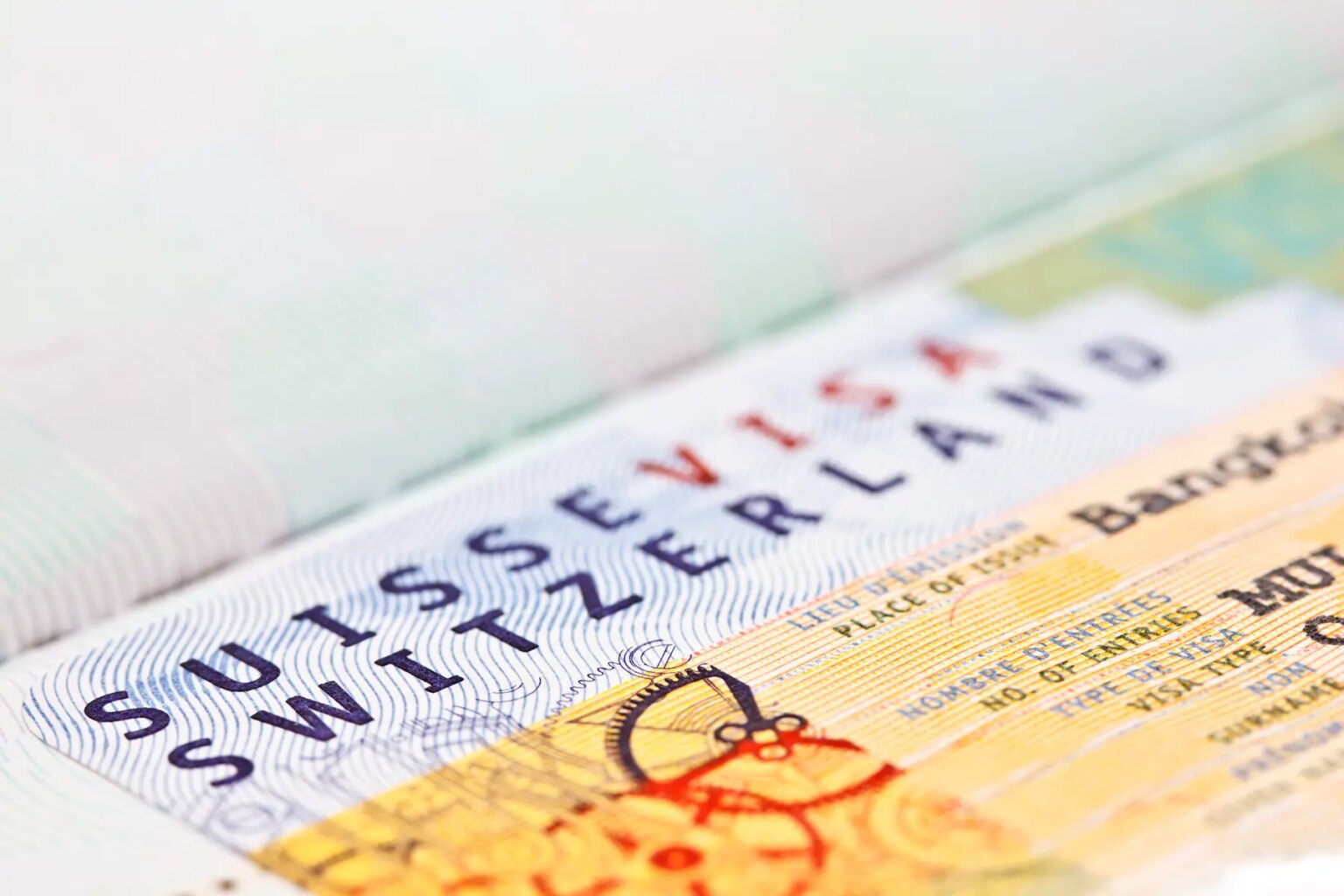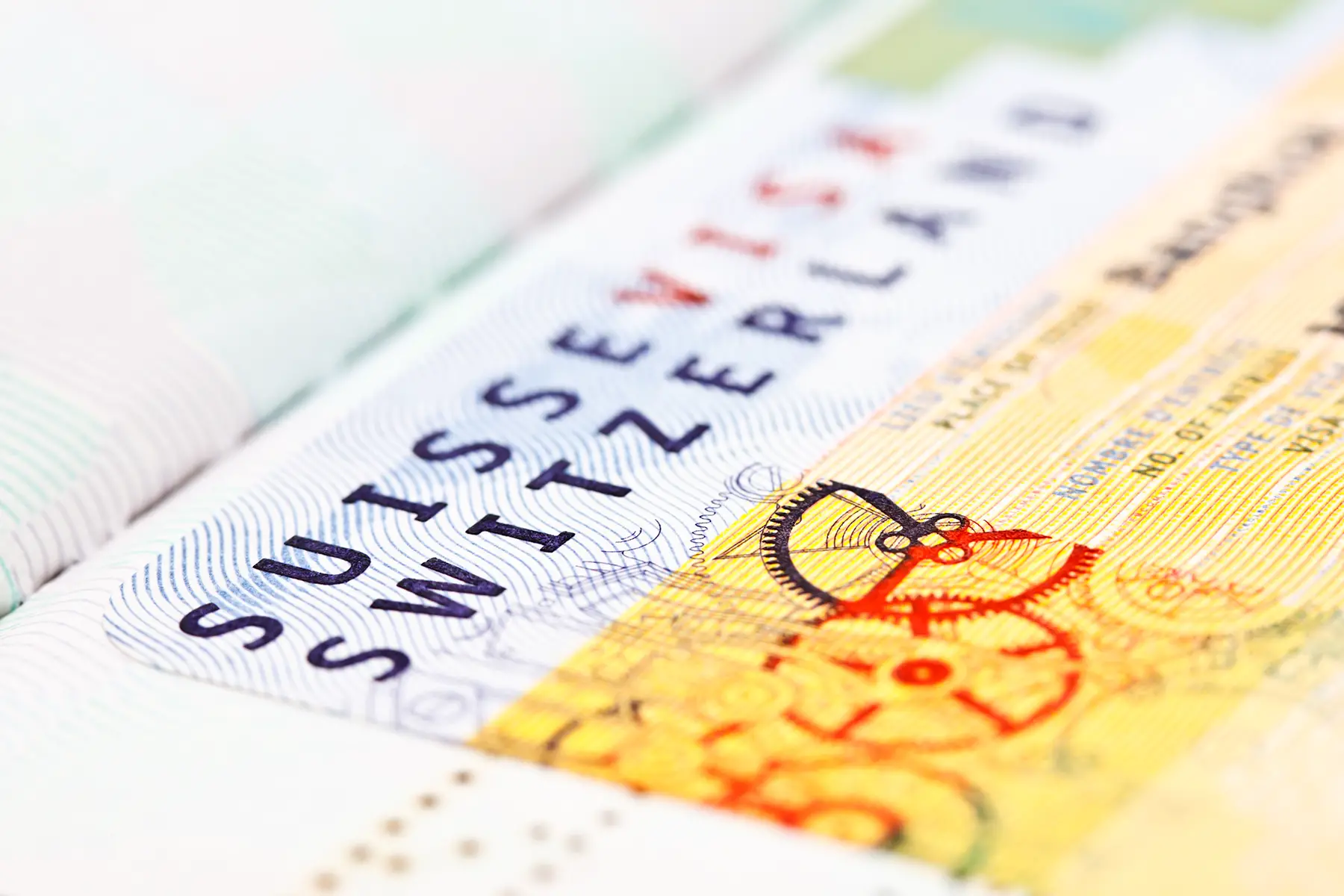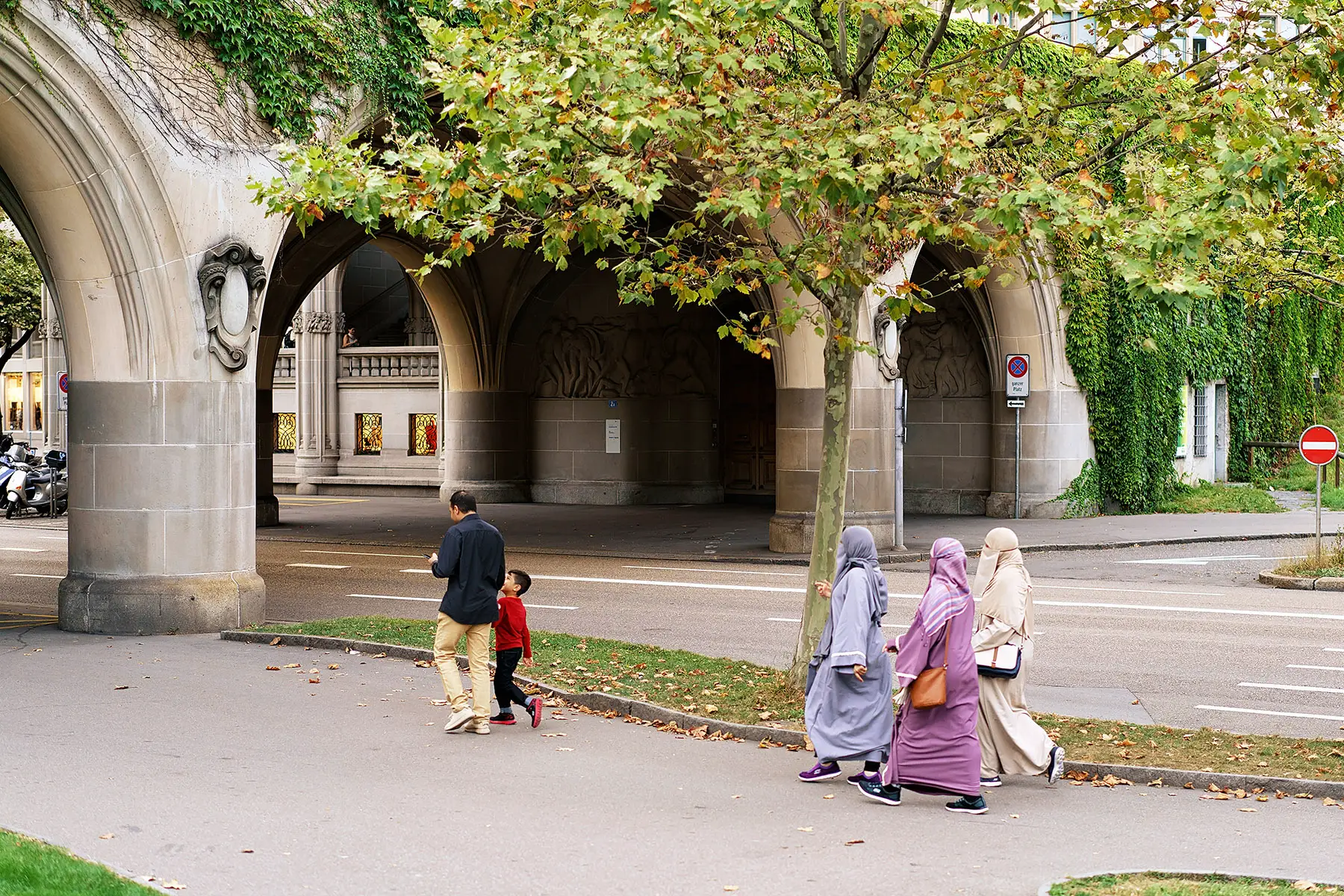You may need a visa if you come to Switzerland for work purposes, and you will definitely need a residence permit if you stay in the country for more than three months. This guide to the Switzerland work visa covers the following topics:
- Working in Switzerland
- Who needs a work visa for Switzerland?
- The Switzerland work visa
- Work permits in Switzerland
- Switzerland work visas for students
- Work visas in Switzerland for self-employed, freelancers, and entrepreneurs
- Work visas in Switzerland for seasonal/temporary workers
- Volunteering and work experience in Switzerland
- Switzerland work visas for family members
- Appeals and complaints about work visas in Switzerland
- Useful resources
The Relocator
Planning a new life in Switzerland? Give yourself some peace of mind with The Relocator. On their easy-to-use platform, you'll be able to compare your options quickly, getting quotes from some of the biggest names in global relocations. Move abroad confidently with The Relocator.
Working in Switzerland
Switzerland has one of the world’s strongest economies and it boasts a highly-skilled workforce. However, the Swiss government strictly controls the number of workers coming into the country. In recent years, the government has reduced the number of Switzerland work visas issued to those from outside the European Union (EU) and the European Free Trade Association (EFTA, which consists of Iceland, Liechtenstein, Norway, and Switzerland).

The Swiss immigration authorities have also tightened application practices, such as closer scrutiny of applications, increased salary requirements, and stricter extension rules. Only those that meet the conditions or work in a shortage industry usually get a Swiss work visa.
There were around 1.7 million foreign workers in Switzerland at the end of 2019 – that accounts for roughly 20% of the national workforce. Many work in high-skilled jobs in leading sectors such as banking, pharmaceuticals, and food retail.
The quotas for Swiss work visas for 2021 are:
- 8,500 permits for non-EU/EFTA nationals (4,500 long-term B permits and 4,000 short-term L permits)
- 3,500 permits for British workers (2,100 long-term B permits and 1,400 short-term L permits)
The State Secretariat for Migration (SEM) in Switzerland is responsible for Swiss visas and immigration, although the local cantonal migration offices issue residence permits and deal with much of the administration.
Who needs a work visa for Switzerland?
Switzerland operates a dual system when it comes to the right to seek employment in the country, with rules depending on whether or not you are an EU/EFTA citizen.
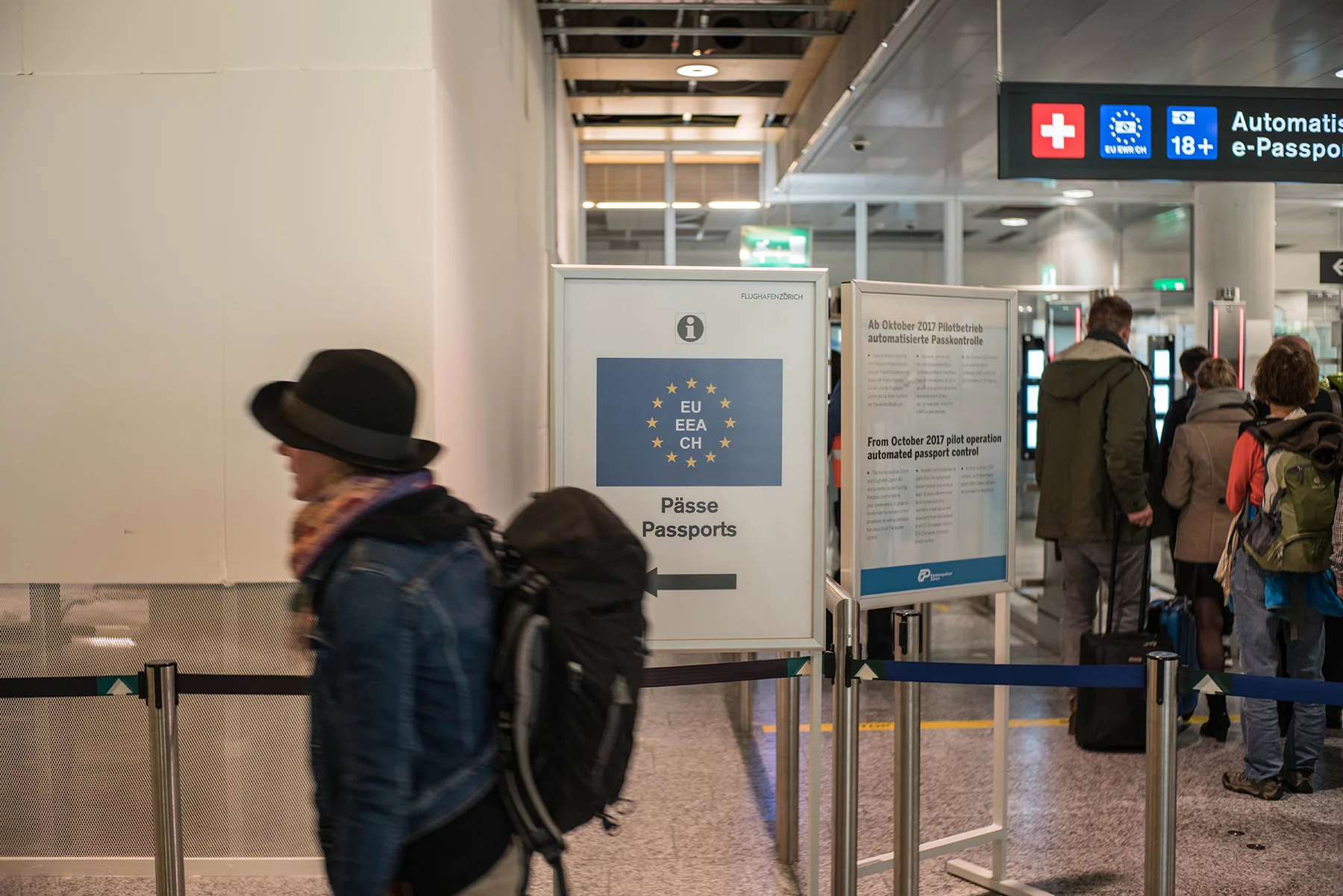
Although Switzerland is not a member of the EU, it is part of the EFTA and thus grants freedom of movement to those from EU/EFTA countries. EU/EFTA citizens can freely enter Switzerland and look for work without a visa. They can stay for three months (sometimes extended to six months) while looking for work. If they find a job that means they will stay in Switzerland for longer than three months, they must get a Swiss residence permit. Rules are slightly different for Croatian citizens.
Non-EU/EFTA nationals will need to obtain a Switzerland work visa before coming to Switzerland. You will need to first have a job offer from a Swiss employer. In addition to this, you will need to meet other requirements, such as being highly qualified.
Exceptions to this rule are students and family members of C settlement permit holders. Students can work a certain number of hours while studying on a student visa, while certain relatives of Swiss residents can work on their Swiss family visa. For more information, see our guides on studying in Switzerland or moving to Switzerland to join a partner.
The Switzerland work visa
Switzerland is different from many European countries in that you need to have a residence permit before you apply for your entry visa for work purposes. Your prospective employer applies for the permit on your behalf (see below section). This means that you need to have a job in place before making your Swiss visa application.
The Switzerland work visa is the Schengen category D visa for stays of more than 90 days.
Requirements for a Swiss work visa
To be eligible for a work visa in Switzerland, you will need to meet the following requirements:
- Have a job offer in place in Switzerland
- Be either a manager, specialist, or highly qualified worker (i.e., have degree-level qualifications and several years of professional experience)
- You are applying at a time when annual work permit quotas are not full
- There is nobody available in Switzerland or any EU/EFTA country for the job
- Your job offer has the same salary and work conditions that would apply to a Swiss resident
- For many jobs, authorities consider additional criteria such as language skills, ability to integrate into Swiss society, criminal record, and ability to support yourself and any family members joining you
How to apply for a Swiss work visa
Once you have found a job in Switzerland, your employer applies to the immigration authority at their local Swiss canton for your work permit. This gives you the right to live and work in Switzerland. The application is then sent for approval to the SEM.
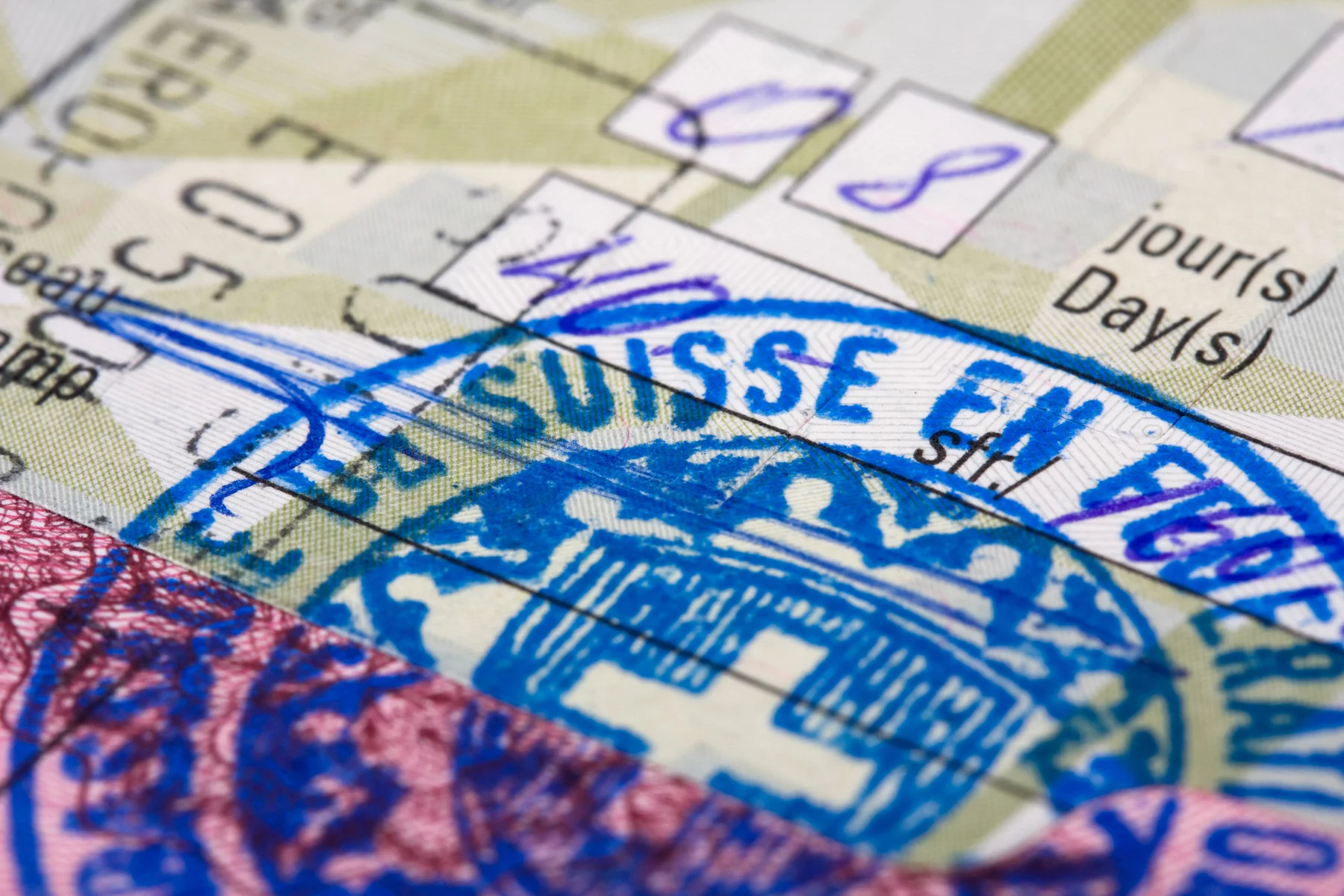
You can begin your application for your Switzerland work visa through the Swiss embassy or consulate in your home country as soon as you have found a job. However, you must have the work permit before your visa is granted. If your work permit application is successful, the cantonal migration authority will contact the embassy/consulate with visa clearance.
In addition to submitting your visa application form, you must provide:
- Photocopy of your passport or valid travel ID
- Proof of your job offer (e.g., an offer letter, copy of the employment contract)
- Your CV and copies of educational and work qualifications in German, French, Italian, or English (translated by an official translator if necessary)
The visa application usually takes around 8–10 weeks to process.
Work visa costs in Switzerland
A category D visa currently costs CHF 88. You may have to pay extra (up to 50% above the standard price) if you need the visa fast-tracked or outside of normal working hours. You’ll have to pay along with the application.
Swiss work visa length
Swiss work visas are usually valid for one to five years. If you are working on a short fixed-term contract of 12 months or less, you will probably be given a non-renewable L permit for one year. For contracts lasting longer than 12 months, you get a B permit, which can be renewed each year. After ten years in Switzerland (or five years if you’re from the EU/EFTA, the United States, or Canada), you can apply for a settlement permit if you want to.
You cannot enter Switzerland as a tourist and then take on work. If you want to work, you must leave Switzerland and then apply from your home country.
Work permits in Switzerland
Your work permit in Switzerland is essentially your residence permit. This differs from your work visa, which is the document you need to enter Switzerland and present to border control. Whereas you are responsible for making your visa application, your Swiss employer applies to the cantonal migration authorities for your work permit.
Types of Swiss work permits
Foreign workers in Switzerland needing a work visa will be issued one of two types of permit:
- Permit L – for short-term residence permit that allows you to stay in Switzerland for up to one year. The L permit is tied to the terms of the employment contract and may be extended in exceptional cases for a further year but no more if you continue to work for the same employer.
- Permit B – this is an initial or temporary residence permit that is valid for one year but can be extended annually, as long as there are no grounds for it not to be reissued (e.g., being a recipient of welfare benefits). These permits are issued on a quota basis and are tied to the same employer. The permits often specify that you live in the canton that issued the permit and cannot move out of that canton.
If you have lived in Switzerland for ten continuous years (or five if you are a US or Canadian citizen), you can apply for a Permit C which is a settlement permit. Those who work in Switzerland long-term on a B permit often move to a C permit when they become eligible. However, this is not mandatory. For more information, see our guide to Swiss citizenship.
Getting your permit
Although your employer sorts out your Swiss permit before you arrive in Switzerland, you will need to report to the cantonal immigration office that issued your permit before you start working for your Swiss employer and no later than 14 days after your arrival.
You are typically responsible for renewing your permit if necessary with the cantonal authorities. You should do this no later than two weeks before the expiry date.
Work permit costs vary between cantons but are typically around CHF 160. Employers in Switzerland sometimes agree to cover permit costs.
Switzerland work visas for students
If you are studying on a Swiss student visa, you don’t need a separate work visa to take up employment. However, you can only work on your student visa after living in Switzerland for six months. Furthermore, you can only work a maximum of 15 hours a week during term time.

Those educated to Master’s level or above can work for the Swiss university or institute they are studying at straight away.
Before you start working in Switzerland as a student, your employer will have to get you a work permit and you will need to inform your cantonal immigration office of your employment.
Work visas in Switzerland for self-employed, freelancers, and entrepreneurs
Switzerland doesn’t offer self-employment visas. Those wanting to start their own business or work in a self-employed capacity usually need to have a settlement permit. This means you need to have already lived in Switzerland for at least five years, or in many cases ten years, to become self-employed.
The two main exceptions to this are:
- Those married to Swiss citizens or permanent residents, who can become self-employed using their family visa
- Entrepreneurs with a business idea that will boost jobs and the economy can get an investor visa and a settlement permit if they are willing to make an annual lump-sum tax payment of at least CHF 150,000
Other than this, the cantonal authorities and SEM may sometimes authorize requests for self-employment if they feel that there is a significant economic benefit and you meet certain personal, financial, and business requirements. You should enquire with your local cantonal authority.
Work visas in Switzerland for seasonal/temporary workers
Switzerland doesn’t issue special short-term visas for seasonal, short-term, or summer workers. Instead, you will have to apply for a category D visa and obtain an L permit that allows you to stay in the country for up to a year.
If you come to Switzerland for purposes such as a business trip, work-related event, or an official visit that lasts less than 90 days, you will need to apply for a Schengen short-stay C visa if you are from a country that has visa requirements to enter Switzerland.
You can come and work as an au pair in Switzerland if you are between 18 and 25 years old and get a placement through an au pair agency. The agency must have a license from the Swiss State Secretariat for Economic Affairs (SECO). The family you will be staying with has to apply for your visa and permit from their cantonal migration office.
Volunteering and work experience in Switzerland
You can travel to Switzerland to volunteer or do work experience if you are aged 35 or under. Volunteering and work-experience placements are treated similarly to paid work in terms of visa requirements. In other words, you will need a Schengen C visa relevant to the purposes of your trip if you are from a country with visa entry requirements into Switzerland and your placement is for 90 days or shorter.

For longer placements, you need a category D visa and the organization you are volunteering with will need to get you an L permit. This lasts for a maximum of a year.
Switzerland runs a Young Professionals (trainees) program that allows citizens from the following countries to work in the country for up to 18 months. This program is open to citizens of the following countries: Argentina, Australia, Canada, Chile, Japan, Monaco, New Zealand, the Philippines, Russia, South Africa, Tunisia, Ukraine, and the US.
To qualify, you must:
- Be between 18 and 35 years of age (20–30 if you’re from Australia, or 18–30 if you’re from New Zealand or Russia)
- Have completed either vocational training or hold a relevant degree
Trainees must find a placement relevant to their study or profession and should be paid at rates relevant to the industry and location. You cannot take up any other employment. Applications are through the Swiss embassy or consulate in your home country. Your trainee provider will sort out your work permit.
Applicants from Japan, Monaco, and New Zealand don’t need a work visa for the Young Professionals program. Those from other countries need to secure a Swiss visa from their embassy or consulate.
Switzerland work visas for family members
Relatives who come to Switzerland on a family visa are entitled to work with the same employment rights as the family member they are joining. They must register with the cantonal immigration and labor market authorities first.
Only residents with a C settlement permit have the right to be joined by family members. EU/EFTA permit holders can be joined by spouses/partners, children, grandchildren, parents, and grandparents. Spouses who join also have the right to become self-employed in Switzerland.
Third-country C permit holders can only be joined by spouses/partners and children under 18. Spouses have the right to work or become self-employed.
Those with B or L residence permits don’t have the automatic right to be joined by any family members. However, the cantonal authorities may allow spouses and dependent children under certain circumstances. In these instances, spouses will have the right to work in Switzerland.
Appeals and complaints about work visas in Switzerland
If you are refused a Switzerland work visa for any reason and are unhappy with the decision, you should contact the Swiss embassy or consulate in your home country within 30 days and provide them with details of your complaint.
If the embassy or consulate is unable to provide you with a satisfactory answer, you can contact the SEM, the Swiss authorities who deal with Swiss visas and permits. You will need to pay an advance on costs of CHF 200.
If SEM rejects your appeal, your final option is the Federal Administrative Court. You should file your appeal within 30 days. Send your appeal along with any supporting evidence to:
Federal Administrative Court
P.O. Box/Postfach
9023 St Gallen
See information about submitting your appeal electronically on the Federal Administrative Court’s website.
Useful resources
- State Secretariat for Migration (SEM) – Swiss federal department that oversees matters on immigration and residence
- Swiss Authorities Online – government portal with information in English
- Link to visa application forms
- Cantonal Immigration and Employment Market Authorities – local authorities that issue permits and provide information on procedures
